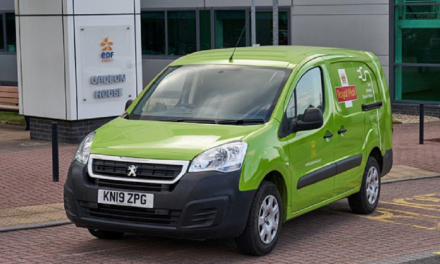
Red letter day for UK postal services
You shouldn’t expect rival posties scrapping on your doorstep, a choice of different companies’ stamps or new post boxes springing up next to the Royal Mail’s signature red pillar boxes. But on new years’ day, the UK brought the last great government-owned monopoly, that on post, to an end, liberalising a market worth GBP6.5bn (USD11.4bn, E9.14bn). Any company can collect, sort and deliver letters of any size.
It’s hard to understand why it took so long. As far back as 1970, before Margaret Thatcher had put it on the political radar, the Institute of Economic Affairs published a monograph – The Postal Service: Competition or Monopoly – arguing that the Royal Mail’s then 320-year monopoly be scrapped. But the writer, Ian Senior, a postal economist who runs Triangle Management Services, has had to wait his whole career for it to happen.
But few in the sector expect a revolution. Until now, only Royal Mail could collect letters (costing less GBP1 and weighing less than 350g) for delivery in batches of less than 4,000 letters, effectively limiting competition to large businesses.
Royal Mail’s competitors should now compete to deliver mail for small- to medium-sized businesses, but it will be a while before they try to prise away its hold on the UK’s doorsteps.
In the only two countries that have liberalised as thoroughly as the UK – New Zealand and Sweden – companies have tried to replicate the postal network.
In New Zealand, Fastway Post has its own postboxes – franchised out into shops across the country – and issues its own stamps (prized by collectors). And in Sweden CityMail, in which the Royal Mail briefly had a share, used to have its own postboxes.
But for the most part, these attempts have failed and new entrants into postal markets have done best by concentrating on serving businesses and niche markets, rather than delivering letters for peoples’ grandmothers (which requires expensive hand-sorting as machines can’t read hand-writing).
What liberalisation is expected to mean is that companies sending out, say, 100 letters a day, will be able to pay one of these new entrants to collect, sort and deliver them to one of Royal Mail’s 69 regional post offices, leaving the Royal Mail’s postmen to put them through letter boxes.
This is what most of the 14 companies to have postal licences up until now have done. They argue that where Royal Mail is weakest – and hence where the money is to be made – is in its sorting systems. The company admits it needs to invest GBP2bn in upgrading to match its competitors standards.
The leading competitors are UK Mail, a division of the UK’s Business Post and two subsidiaries of European post offices: TNT Mail, a division of Dutch Logistics firm TNT, which owns the Dutch post office; and DHL Global Mail, run by Deutsche Post.
But the glory of free markets is in their ability to throw up unexpected innovations and efficiencies. There are already companies bypassing the Royal Mail altogether.
Special Mail Services in Northampton concentrates on door-to-door delivery of confidential documents and DHL CitySpeed provides an individual to-the-door service, but concentrates on a circumscribed area. TNT Mail and UK Mail are considering similar services.
One thing’s for sure, the free market is unlikely to provide guaranteed delivery to every household in the UK at a flat price – the so-called Universal Service Obligation.
UK Mail talks of having relatively few postboxes placed in prominent places – supermarket forecourts, garages and stations. Instead of stamps, they may use electronic payment.
But if the free market won’t do it, why should the Royal Mail? The old rationale – that otherwise those in rural areas would be cut off – makes little sense in a world of email, mobiles and internet billing. All that those in rural areas would be missing out on would be junk mail.











